#lucy diver
Explore tagged Tumblr posts
Text
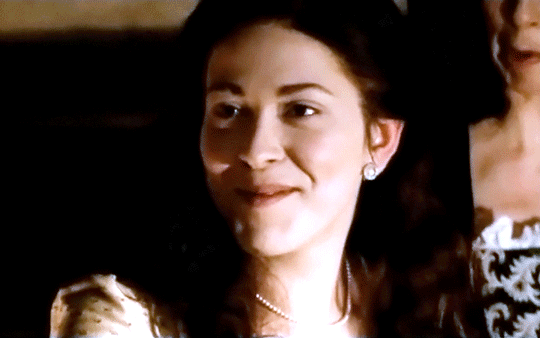

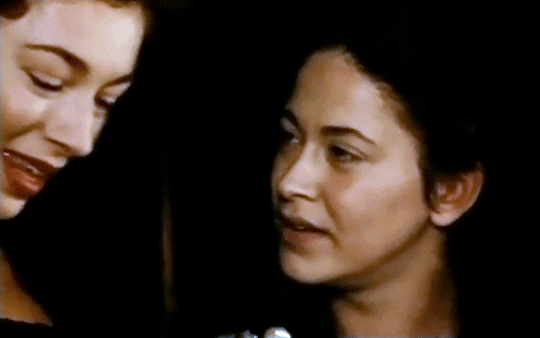
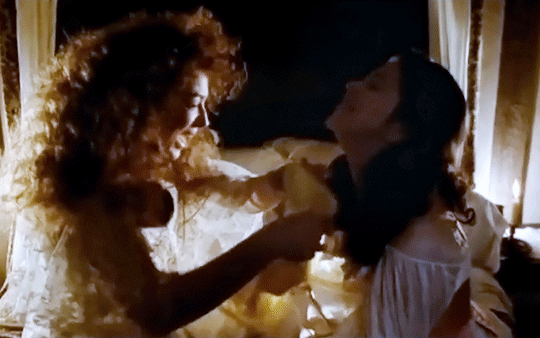
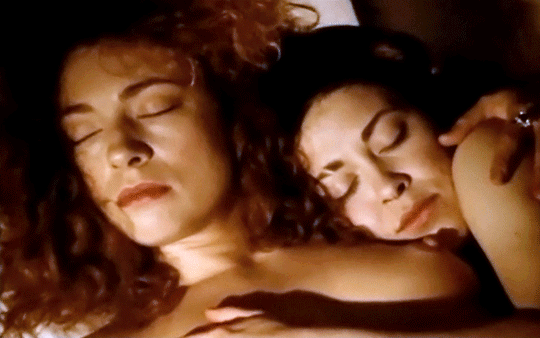
Moll & Lucy
The Fortunes and Misfortunes of Moll Flanders - 1996
#Alex Kingston#Nicola Walker#Moll Flanders#Lucy Diver#The Fortunes and Misfortunes of Moll Flanders#my gifs#tv edits#tv : Mini Series#tv : Period#tv : British#akedits#1996#harold they're lesbians
131 notes
·
View notes
Photo
💜🔥🫠






Moll & Lucy, for we-live-in-marvelous-times
233 notes
·
View notes
Text

Nos éclaireuses, reproduction du tableau original réalisée par Amélie Beaury-Saurel, carte postale, c. 1914.
« Reproduction couleur du tableau réalisée par Amélie Beaury-Saurel, intitulé Nos éclaireuses, exposé au Salon de Paris en 1914, représentant sept pionnières : (de droite à gauche) la poétesse Lucie Delarue-Mardrus, l'aviatrice Hélène Dutrieu, l'avocate Suzanne Grumberg et la peintre Mme Henri Rochefort, née Marguerite Vervoort. Une cochère et une cycliste y sont aussi représentées. »
Wikimedia Commons
#Lucie Delarue Mardrus#Amélie Beaury Saurel#Hélène Dutrieu#Suzanne Grumberg#Marguerite Vervoort#Art#Divers#Wikimedia Commons
9 notes
·
View notes
Text
“In the sky, after drifting in power for a few seconds, Chuuya lost the black wings on his back and drifted down gently. Dazai caught his body.”
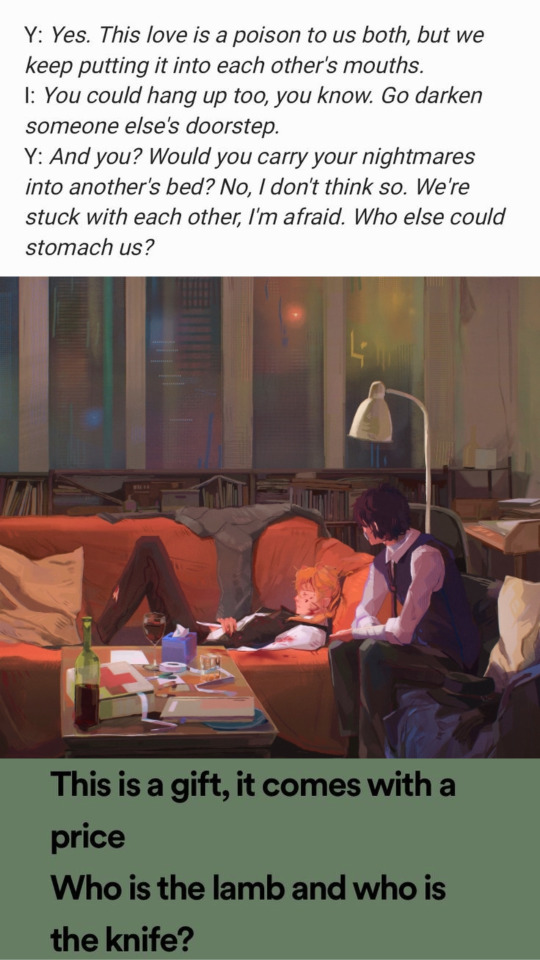
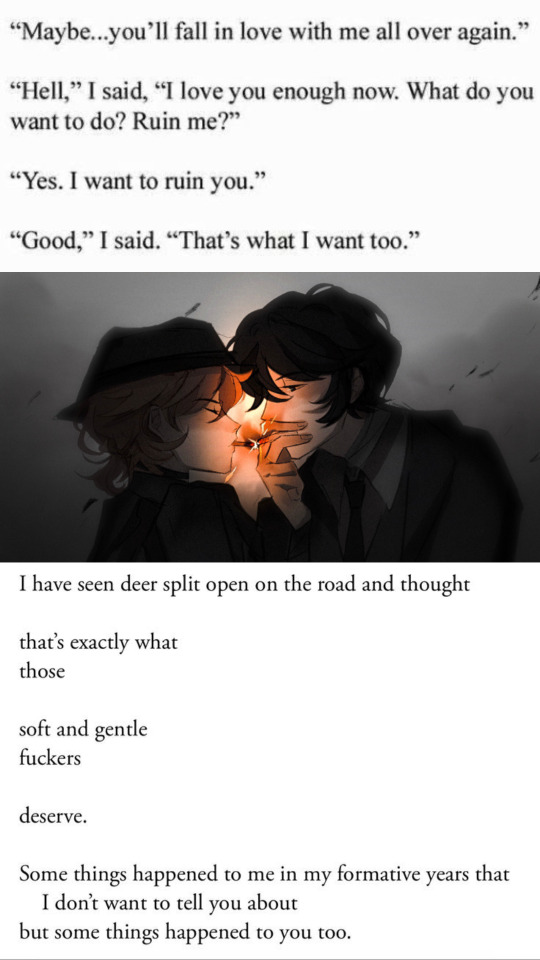
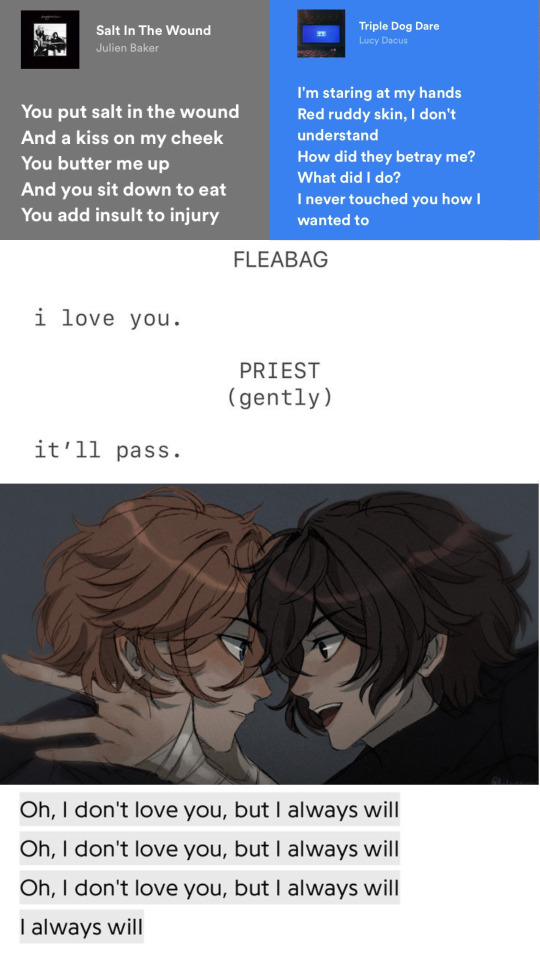


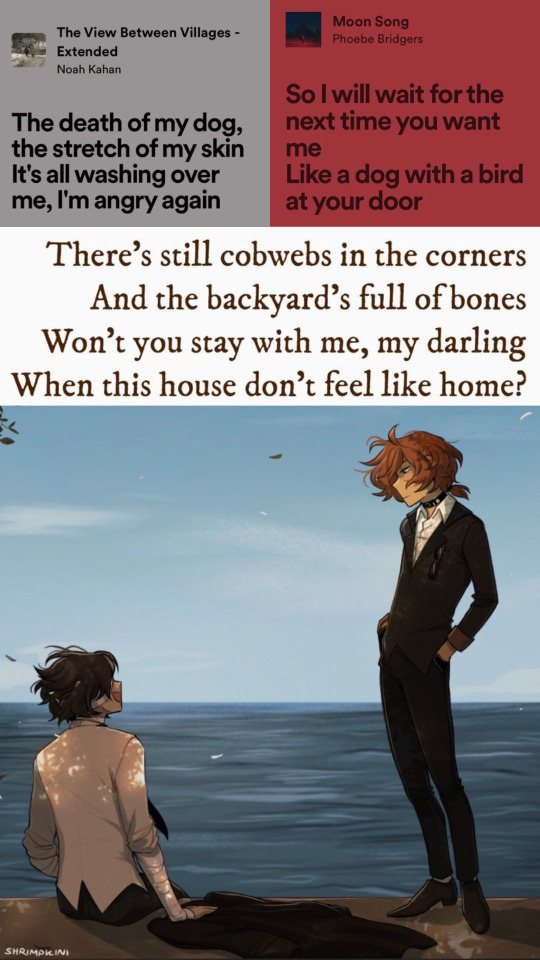
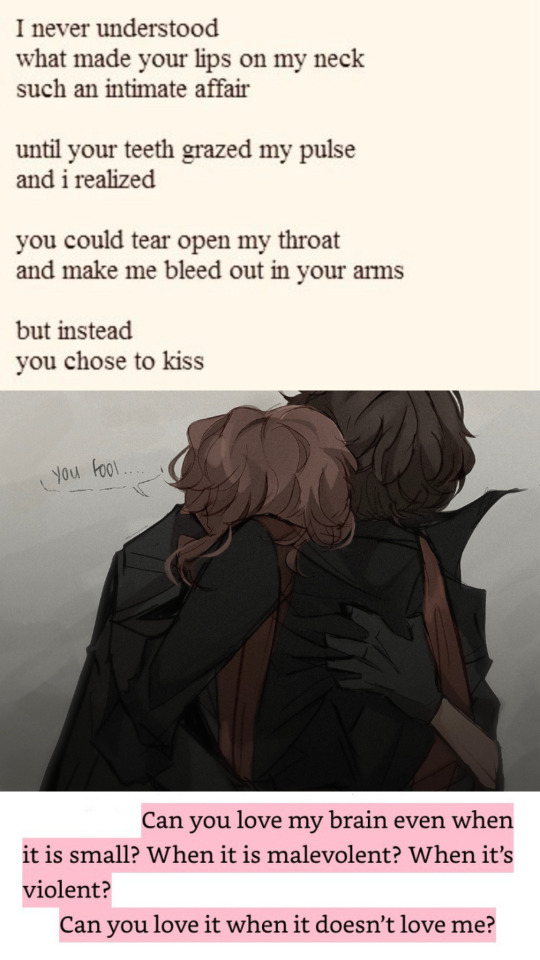
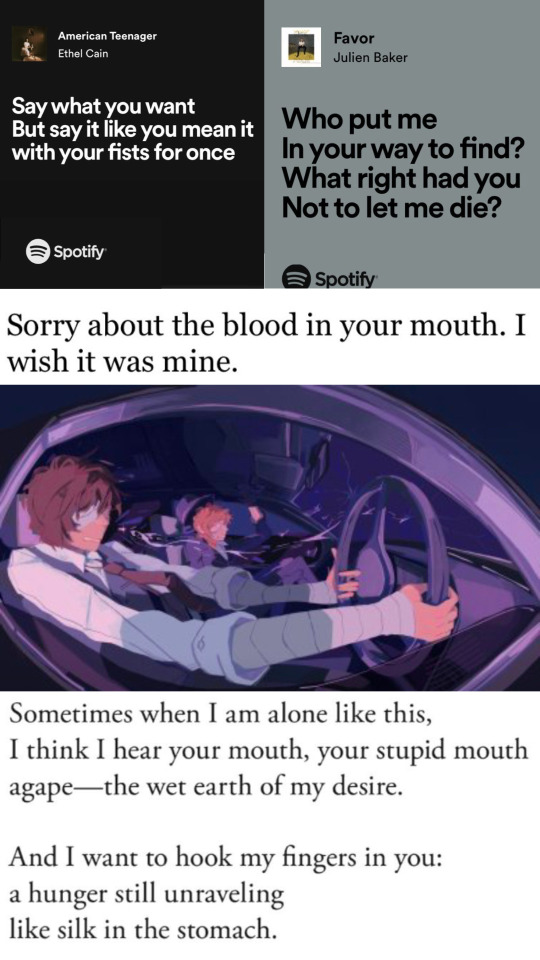

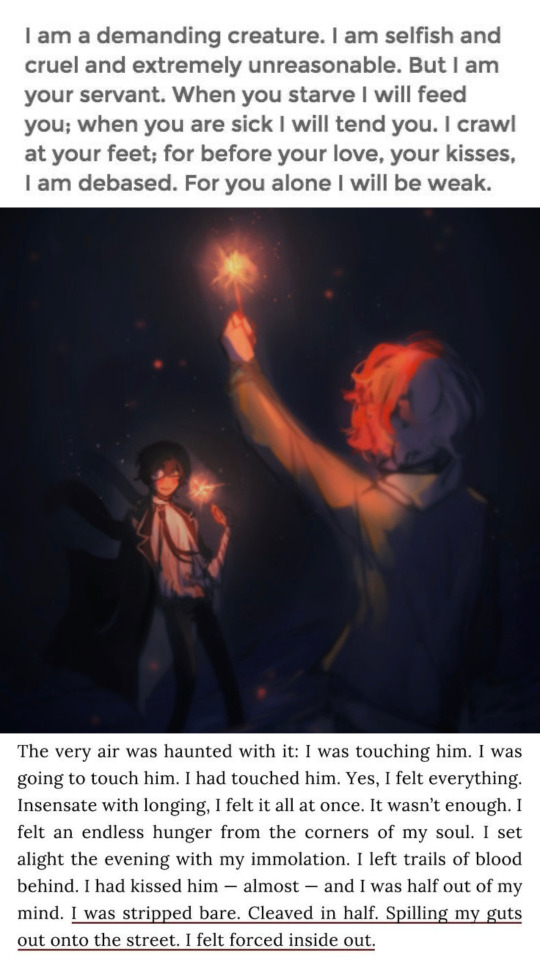
for more soukoku webweaves
creds:
joan tierney// art by @pleucas// rabbit heart - florence+the machine//a farewell to arms - ernest hemingway// art by @lotus-pear// salvage - hedgie choi// salt in the wound - boygenius// triple dog dare - lucy dacus// fleabag - phoebe waller-bridge// art by @lotus-pear// poison & wine - the civil wars// sue zhao// art by @pleucas// wishbone - richard siken// i am the antichrist to you - kishi bashi// we’re in love - boygenius// sue zhao// art by @kamapon// fleabag - phoebe waller-bridge// the view between villages - noah kahan// moon song - phoebe bridgers// curses - the crane wives// art by @shrimpkini// unknown// art by @lotus-pear// alone with you in the ether - olivie blake// american teenager - ethel cain// favor - julien baker// little beast - richard siken// art by @pleucas// lessons on expulsion - erika l. sànchez// true blue - boygenius// sedated - hozier// the trials of apollo: the hidden oracle - rick riordan// art by @lotus-pear// deathless - catherynne m. valente// art by @seukorei// the slaughterhouse - yves olade//
edit: I know one of the fanarts has do not repost on it, which is why I asked the artist beforehand if it would be okay for me to repost with credit. I’ve posted a picture of the messages just go under my #izzie rambles tag so do not worry it’s all good no need to send me hate on anon
tags (comment or send a message if you want to be added/removed):
@philzokman @dinosaur-mayonnaise @vivid-vices @pendragonstar @vinylbiohazard @fixation-central @sommmee @lotus-reblogs @galaxitic @gorotic @dazaisbbgrill @thesunshinebard @underthetree845 @whiteapplesandblackblood @pe4rl-diver @autistic-ranpo @the-gayest-sky-kid @ricelover888 @sskk-brainrot @liyv @hypotheticallyhaunted @sigskk @oatmilkbasic @sempieternall @pastel-paramour @thornedarrow @springkitten @sproutingstars @ghostsinacoat @shroombunnies @megaroniandcheez @http-bluewerry
also please tell me if me tagging you actually worked because I’ve been having some issues with tagging other users
#bsd#soukoku#skk#dazai osamu#nakahara chuuya#izzie posts#bungou stray dogs#dazai chuuya age fifteen#bsd stormbringer#bsd fifteen#bsd chapter 113#bsd chuuya#bsd skk#bungo stray dogs#bsd dazai#skk fluff#skk angst#soukoku fluff#soukoku angst#chuuya nakahara#bsd double black#bsd memes#web weaving#if this flops i will cry#this is a threat
323 notes
·
View notes
Text
9-1-1 characters as sharks❕🦈
As a shark nerd, I had to. Enjoy! :)

1 - ✭ Bobby ; angel shark
• They spend most of their time hiding in mud and dust
2 - ✭ Athena ; leopard shark
• Their rough skin makes it hard for stuff to settle on them.

3 - ✭ May ; zebra shark
• As they mature, their stripes fade and then become small dark spots, which is why they are often mistaken for leopard sharks
4 - ✭ Hen ; mako shark
• They are very fast and smart sharks

5 - ✭ Karen ; silky shark
• They have a great hearing
6 - ✭ Chimney ; spiny dogfish shark
• They’re quite small

7 - ✭ Maddie ; blue shark
• They will attack if they feel threatened
8 - ✭ Daniel ; whale shark
• Only 10% of whale sharks make it to adulthood

9 - ✭ Buck ; lemon shark
• They are very loyal to their home, are highly social and can be jealous of other lemon sharks. They’ve also been known to help out humans who are lost and in danger
10 - ✭ Eddie ; white tip shark
• They swim away when swimmers or divers approach

11 - ✭ Ravi ; nurse shark
• Really friendly and social
12 - ✭ Albert ; bluntnose six gills shark
• Their ability to handle a variety of temperatures and depths allows them to go wherever they like

13 - ✭ Lucy ; megalodon
• There’s still a lot we don’t know about them
14 - ✭ Josh ; horn shark
• They have a tough exterior and sharp spines to protect themselves
—————
The end 🦈��� Thank you for reading <3
#did this for twitter in the first place but the autism was too strong#had to post it here too#the research part took SO LONG#i really wanted to find accurate stuff#hope i did#911#9-1-1#911 on abc#911 abc#bobby nash#athena grant#may grant#hen wilson#karen wilson#chimney han#maddie buckley#daniel buckley#evan buckley#eddie diaz#ravi panikkar#albert han#lucy donato#josh russo#sharks#i love sharks#like really REALLY love them
103 notes
·
View notes
Text
💜😍🏳️🌈


THE GREAT ESCAPE
A little drawing of Moll Flanders and Lucy Diver, because I'm still refusing to acknowledge the fact that their story ended up in death. Happy pride month, if it were up to me they would've lived.
#the fortunes and misfortunes of moll flanders#moll flanders#lucy diver#alex kingston#nicola walker#meluisart#sapphic#let Lucy live
72 notes
·
View notes
Text
CrashSeries - Part Two: Crash Down

Tagging: @kmc1989 @burningpeachpuppy @acesgunner95 @caffeinatedwoman @unknown6669991 @irishavengersassemble @midnightstarqueen @sportslovers-world @wildcard566 @fanny-123456 @alexlynn16 @district447 @firecountryqueen666 @yousigned-upforthis@coldmidnightlights @totalstitchlover19 @chlo-lo14 @doggirlforever @toheavenwmydrms @missyhoneybee @thatanimalmom @wabi-sabi1090
Crash!Series:
Part One: Test Flight

Manny’s reading through the after action reports in his office when the shit hits the fan. He has the radio resting on the edge of his desk, tuned to the SAR frequency and he’s smiling because you, you’re having a great time out there putting that new chopper through it’s paces. He can hear the joy in your voice, the excitement and it sends a deviant little thrill coursing through his body because he knows you’re going to come home a little wild tonight.
It's thirty minutes in the excursion that you start to have trouble, Manny’s detects your change in tone, there’s a calmness that only comes when you’re in the midst of a crisis.
“I’m passing over lake.” You report. “The engine’s starting to stutter and the console is getting hot. I’m going to try and set her down on the shore, have a mechanic standing by because I don’t think we’re going…”
The radio cuts out then and something wrenches in Manny’s chest because he knows the stats. If you go down in the lake, your chances of survival reduce significantly.
Helicopters roll when they hit the water, the pressure jams the doors as the vehicle starts to sink. There’s very narrow window for escape and that’s usually thwarted by the seatbelt jamming, precious seconds are usually lost trying to fight with the mechanism as the cold water crashes into you.
When he makes it onto the scene with Three Rock, his heart is in his throat. He’s tried to compartmentalise on the way over here, tried to pretend it isn’t you, that it’s just a routine call but when he sees that helicopter upside down in the lake sinking, the anguish hits him like a freight train. It’s like he can’t fucking breathe.
Vince is already taking control of the situation, he has divers in the water, the rest of his crew searching the reeds in the slim chance you did make it out of the chopper. Three Rock join them, spreading out into the woods.
Manny doesn’t stray too far, he’s waiting for Jake to come out of the water, to give him the bad news. When he sees him break the surface, Manny feels the blood rush out of his body, he can’t think, he can’t feel, he can only watch as Jake shakes his head.
You’re not in there.
“The windows broken and the seat belt’s been sliced through.” He tells Manny and Vince once he gets back onto land.
“She’s a strong swimmer, depending on her injuries there’s a chance she could have made it to the shore.” Vince says, his hand squeezing Manny’s shoulder.
It’s Bode that picks up your trail, there’s an embankment on the opposite of the lake that leads back into the dense forest. It appears you’d managed to drag yourself up onto it before vanishing into the trees.
“Luce is smart.” Manny tells Vince and Bode. “She’ll be trying to make it to higher ground so she can get the lay of the land.”
“It’s going to be dark soon, in those wet clothes she’ll be hypothermic before nightfall.” Vince says as he studies the blood that’s smeared across the vegetation. “She’s clearly injured, we’re going to need the Med Team on standby with blankets and heat pads.”
It takes them over an hour to find you and when they do, Manny thinks you’re dead already. Your skin is pale, your uniform drenched in blood. Your left arm is broken, he can see the bone sticking out of the skin under the sleeve of your fleece.
“Come on baby.” He whispers, his eyes stinging as Eve and Fern go to work on you. “Come on Lucy, you can’t leave me yet.”
Love Manny? Don’t miss any of his stories by joining the taglist here.
Interested in supporting me? Join my Patreon for Bonus Content!
Like My Work? - Why Not Buy Me A Coffee

43 notes
·
View notes
Text
I have a dim half-remembrance of long, anxious times of waiting and fearing; darkness in which there was not even the pain of hope to make present distress more poignant: and then long spells of oblivion, and the rising back to life as a diver coming up through a great press of water.
Lucy comparing herself to Ophelia when she's garlanded in garlic flowers feels worse when you see she's still been thinking of her 'nightmares' as an experience which sounds akin to drowning.
Since, however, Dr. Van Helsing has been with me, all this bad dreaming seems to have passed away; the noises that used to frighten me out of my wits—the flapping against the windows, the distant voices which seemed so close to me, the harsh sounds that came from I know not where and commanded me to do I know not what—have all ceased.
Lucy's experiences sound utterly terrifying, well before tonight. But tonight is an utter horrorshow, blowing all that came before out of the water.
#dracula daily#lucy westenra#also. 'not even the pain of hope to make present distress more poignant' is. FUCK.
22 notes
·
View notes
Text
Nina reads Dracula 🦇
September 17th
OK HERE WE GO I AM MENTALLY PREPARED TO LEARN ABOUT LUCY’S DEA —
Lucy Westenra's Diary.
Nevermind that. Guess I’ll have to do it all over again.
Four days and nights of peace. I am getting so strong again that I hardly know myself. It is as if I had passed through some long nightmare, and had just awakened to see the beautiful sunshine and feel the fresh air of the morning around me. I have a dim half-remembrance of long, anxious times of waiting and fearing; darkness in which there was not even the pain of hope to make present distress more poignant: and then long spells of oblivion, and the rising back to life as a diver coming up through a great press of water.
The pain of hope alright…
To-night Dr. Van Helsing is going away, as he has to be for a day in Amsterdam. But I need not be watched; I am well enough to be left alone.
‘Cause here we go, go, go again 🎶
Thank God for mother's sake, and dear Arthur's, and for all our friends who have been so kind! I shall not even feel the change, for last night Dr. Van Helsing slept in his chair a lot of the time. I found him asleep twice when I awoke; but I did not fear to go to sleep again, although the boughs or bats or something napped almost angrily against the window-panes.
EVERYONE. IS TRYING. SO HARD.
Anyways BACK TO RENFIELD:
Suddenly the door was burst open, and in rushed my patient, with his face distorted with passion. I was thunderstruck, for such a thing as a patient getting of his own accord into the Superintendent's study is almost unknown.
Right. But he did escape the facility itself twice, including once with your complicity. So maybe the safety protocols need a liiittle bit of reassessing here.
Without an instant's pause he made straight at me. He had a dinner-knife in his hand, and, as I saw he was dangerous, I tried to keep the table between us. He was too quick and too strong for me, however; for before I could get my balance he had struck at me and cut my left wrist rather severely.
FIGHT!!!!! FIGHT!!!!! FIGHT!!!!! FIGHT!!!!
He was lying on his belly on the floor licking up, like a dog, the blood which had fallen from my wounded wrist. He was easily secured, and, to my surprise, went with the attendants quite placidly, simply repeating over and over again: "The blood is the life! The blood is the life!"
Renfield’s DYI Guide to Vampirism: now available in a bookstore near you!
I cannot afford to lose blood just at present;
This is a terrifying and strangely sweet thought and I will be reusing this turn of phrase.
Happily Van Helsing has not summoned me, so I need not forego my sleep; to-night I could not well do without it.
Telegram, Van Helsing, Antwerp, to Seward, Carfax. Do not fail to be at Hillingham to-night.
Now that’s what I call comedic timing.
Anyways back to… Lucy again… Oh…
I write this and leave it to be seen, so that no one may by any chance get into trouble through me. This is an exact record of what took place to-night. I feel I am dying of weakness, and have barely strength to write, but it must be done if I die in the doing.
Talk about an emotional roller-coaster.
Presently the door opened, and mother looked in; seeing by my moving that I was not asleep, came in, and sat by me. She said to me even more sweetly and softly than her wont:—
"I was uneasy about you, darling, and came in to see that you were all right."
I feared she might catch cold sitting there, and asked her to come in and sleep with me, so she came into bed, and lay down beside me;
SEE WHAT I MEANT LAST TIME. Yes Ms Westenra is dying but she still wants to watch over her little girl! Yes Lucy is a grown adult but she still needs her mum! It’s all about love
After a while there was the low howl again out in the shrubbery, and shortly after there was a crash at the window, and a lot of broken glass was hurled on the floor. The window blind blew back with the wind that rushed in, and in the aperture of the broken panes there was the head of a great, gaunt grey wolf. Mother cried out in a fright, and struggled up into a sitting posture, and clutched wildly at anything that would help her. Amongst other things, she clutched the wreath of flowers that Dr. Van Helsing insisted on my wearing round my neck, and tore it away from me. For a second or two she sat up, pointing at the wolf, and there was a strange and horrible gurgling in her throat; then she fell over—as if struck with lightning, and her head hit my forehead and made me dizzy for a moment or two. The room and all round seemed to spin round. I kept my eyes fixed on the window, but the wolf drew his head back, and a whole myriad of little specks seemed to come blowing in through the broken window, and wheeling and circling round like the pillar of dust that travellers describe when there is a simoon in the desert.
OK OK not to (surprisingly) turn into your local Mrs Westenra Defender™ but. But. If this exact ordeal happened to you and you did not have the benefit of knowing the lore, would your natural conclusion not be that the flowers attracted the wolf? Because that sure as Hell would be mine.
I tried to stir, but there was some spell upon me, and dear mother's poor body, which seemed to grow cold already—for her dear heart had ceased to beat—weighed me down; and I remembered no more for a while.
WAIT SHE’S DEAD????? WHAT ARE WE BLAMING HER FOR EXACTLY????? SHE FUCKING DIED
The maids shrieked, and then went in a body to the dining-room; and I laid what flowers I had on my dear mother's breast. When they were there I remembered what Dr. Van Helsing had told me, but I didn't like to remove them, and, besides, I would have some of the servants to sit up with me now.
I WAS TOLD LUCY’S MUM THREW THE FLOWERS AWAY AND THAT DIRECTLY CAUSED HER DEATH. THAT COULD NOT BE FURTHER FROM THE TRUTH. WHAT HAPPENED
My heart sank when I saw what had happened. They all four lay helpless on the floor, breathing heavily. The decanter of sherry was on the table half full, but there was a queer, acrid smell about. I was suspicious, and examined the decanter. It smelt of laudanum, and looking on the sideboard, I found that the bottle which mother's doctor uses for her—oh! did use—was empty. What am I to do? what am I to do? I am back in the room with mother. I cannot leave her, and I am alone, save for the sleeping servants, whom some one has drugged. Alone with the dead! I dare not go out, for I can hear the low howl of the wolf through the broken window.
WHO WHAT AND HOW
The air seems full of specks, floating and circling in the draught from the window, and the lights burn blue and dim. What am I to do? God shield me from harm this night! I shall hide this paper in my breast, where they shall find it when they come to lay me out. My dear mother gone! It is time that I go too. Good-bye, dear Arthur, if I should not survive this night. God keep you, dear, and God help me!
LUCY NOOOOOOOOOOOOOOOOOOOO —
Letter, Mina Harker to Lucy Westenra (Unopened by her.)
NOOOOOOOOOOOOO
My dearest Lucy,—It seems an age since I heard from you, or indeed since I wrote. You will pardon me, I know, for all my faults when you have read all my budget of news.
Why don’t you twist the knife even deeper Bram.
Well, I got my husband back all right;
A little bit of light in this God-forsaken world
'My dears, I want to drink your health and prosperity; and may every blessing attend you both. I know you both from children, and have, with love and pride, seen you grow up. Now I want you to make your home here with me. I have left to me neither chick nor child; all are gone, and in my will I have left you everything.' I cried, Lucy dear, as Jonathan and the old man clasped hands. Our evening was a very, very happy one.
And twist the knife deeper he did.
So here we are, installed in this beautiful old house, and from both my bedroom and the drawing-room I can see the great elms of the cathedral close, with their great black stems standing out against the old yellow stone of the cathedral and I can hear the rooks overhead cawing and cawing and chattering and gossiping all day, after the manner of rooks—and humans.
Windows! Parallels and contrasts!! Something monstrous VS something divine and most of all human!!! I’m fine this is fine we’re all fine —
How is your dear mother getting on?
ALRIGHT BRAM THAT’S ENOUGH TWISTING.
and Jonathan wants looking after still.
🥺🥹 (<- Hanging on by a thread)
And now I have told you my news, let me ask yours. When are you to be married, and where, and who is to perform the ceremony, and what are you to wear, and is it to be a public or a private wedding? Tell me all about it, dear; tell me all about everything, for there is nothing which interests you which will not be dear to me. Jonathan asks me to send his 'respectful duty,' but I do not think that is good enough from the junior partner of the important firm Hawkins & Harker; and so, as you love me, and he loves me, and I love you with all the moods and tenses of the verb, I send you simply his 'love' instead. Good-bye, my dearest Lucy, and all blessings on you.
Yours,
MINA HARKER.
(Thread snapped)
< Prev 🦇 Next >
#dracula#dracula daily#nina reads dracula#lucy westenra#ms westenra#john seward#r.m. renfield#jonathan harker#mina harker#jonmina#abraham van helsing
21 notes
·
View notes
Text
So I found out there were 164 songs that were banned the day after 9/11 so i got curious. Here are all the ones that were banned.

3 Doors Down – Duck and Run
311 – Down
AC/DC – Shot Down in Flames
AC/DC – Shoot to Thrill
AC/DC – Dirty Deeds
AC/DC – Highway to Hell
AC/DC – Safe in New York City
AC/DC – TNT
AC/DC – Hell’s Bells
Ad Libs – The Boy from New York City
Alanis Morissette – Ironic
Alice in Chains – Rooster
Alice in Chains – Sea of Sorrow
Alice in Chains – Down in a Hole
Alice in Chains – Them Bones
Alien Ant Farm – Smooth Criminal
Animals – We Gotta Get Out of This Place
Arthur Brown – Fire
Bangles – Walk Like an Egyptian
Barenaked Ladies – Falling for the First Time
Barry McGuire – Eve of Destruction
Beastie Boys – Sure Shot
Beastie Boys – Sabotage
The Beatles – A Day in the Life
The Beatles – Lucy in the Sky with Diamonds
The Beatles – Ticket To Ride
The Beatles – Obla Di, Obla Da
Billy Joel – Only the Good Die Young
Black Sabbath – War Pigs
Black Sabbath – Sabbath Bloody Sabbath
Blood Sweat and Tears – And When I Die
Blue Oyster Cult – Burnin’ For You
Bob Dylan / Guns N’ Roses – Knockin’ on Heaven’s Door
Bobby Darin – Mack the Knife
Boston – Smokin’
Brooklyn Bridge – Worst That Could Happen
Bruce Springsteen – I’m On Fire
Bruce Springsteen – Goin’ Down
Bruce Springstein – War
Buddy Holly and the Crickets – That’ll Be the Day
Bush – Speed Kills
Carole King – I Feel the Earth Move
Cat Stevens – Peace Train
Cat Stevens – Morning Has Broken
Chi-Lites – Have You Seen Her
The Clash – Rock the Casbah
Creedence Clearwater Revival – Travelin’ Band
The Cult – Fire Woman
Dave Clark Five – Bits and Pieces
Dave Matthews Band – Crash Into Me
Dio – Holy Diver
Don McLean – American Pie
The Doors – The End
Drifters – On Broadway
Drowning Pool – Bodies
Edwin Starr – War
Elton John – Benny & The Jets
Elton John – Daniel
Elton John – Rocket Man
Elvis – (You’re the) Devil in Disguise
Everclear – Santa Monica
Filter – Hey Man, Nice Shot
Fontella Bass – Rescue Me
Foo Fighters – Learn to Fly
Jimi Hendrix – Hey Joe
Frank Sinatra – New York, New York
Fuel – Bad Day
The Gap Band – You Dropped a Bomb On Me
Godsmack – Bad Religion
Green Day – Brain Stew
Happenings – See You in September
Herman’s Hermits – Wonderful World
Hollies – He Ain’t Heavy, He’s My Brother
J. Frank Wilson – Last Kiss
Jackson Brown – Doctor My Eyes
James Taylor – Fire and Rain
Jan and Dean – Dead Man’s Curve
Jerry Lee Lewis – Great Balls of Fire
Jimi Hendrix – Hey Joe
John Lennon – Imagine
John Mellencamp – Crumbling Down
John Mellencamp – I’m On Fire
John Parr – St. Elmo’s Fire
Judas Priest – Some Heads Are Gonna Roll
Kansas – Dust in the Wind
Korn – Falling Away From Me
Led Zeppelin – Stairway to Heaven
Lenny Kravitz – Fly Away
Limp Bizkit – Break Stuff
Local H – Bound for the Floor
Los Bravos – Black is Black
Louis Armstrong – What A Wonderful World
Lynyrd Skynyrd – Tuesday’s Gone
Martha & the Vandellas – Nowhere to Run
Martha & the Vandellas – Dancing in the Streets
Megadeth – Dread and the Fugitive
Megadeth – Sweating Bullets
Metallica – Seek and Destroy
Metallica – Harvester or Sorrow
Metallica – Enter Sandman
Metallica – Fade to Black
Mitch Ryder and the Detroit Wheels – Devil with the Blue Dress
Mudvayne – Death Blooms
Neil Diamond – America
Nina – 99 Luft Balloons/99 Red Balloons
Nine Inch Nails – Head Like a Hole
Norman Greenbaum – Spirit in the Sky
Oingo Boingo – Dead Man’s Party
Ozzy Osbourne – Suicide Solution
Paper Lace – The Night Chicago Died
Pat Benatar – Hit Me with Your Best Shot
Pat Benatar – Love is a Battlefield
Paul McCartney and Wings – Live and Let Die
Peter Gabriel – When You’re Falling
Peter and Gordon – I Go To Pieces
Peter and Gordon – A World Without Love
Peter Paul and Mary – Blowin’ in the Wind
Peter Paul and Mary – Leavin’ on a Jet Plane
Petula Clark – A Sign of the Times
Phil Collins – In the Air Tonight
Pink Floyd – Run Like Hell
Pink Floyd – Mother
P.O.D. – Boom
Pretenders – My City Was Gone
Queen – Another One Bites the Dust
Queen – Killer Queen
All Rage Against The Machine songs
Red Hot Chili Peppers – Aeroplane
Red Hot Chili Peppers – Under the Bridge
R.E.M. – It’s the End of the World as We Know It
Rickey Nelson – Travelin’ Man
Rolling Stones – Ruby Tuesday
Saliva – Click Click Boom
Sam Cooke – Wonderful World
Santana – Evil Ways
Savage Garden – Crash and Burn
Shelly Fabares – Johnny Angel
Simon And Garfunkel – Bridge Over Troubled Water
Skeeter Davis – End of the World
Slipknot – Left Behind
Slipknot – Wait and Bleed
Smashing Pumpkins – Bullet With Butterfly Wings
Soundgarden – Blow Up the Outside World
Soundgarden – Fell on Black Days
Soundgarden – Black Hole Sun
Steam – Na Na Na Na Hey Hey
Steve Miller – Jet Airliner
Stone Temple Pilots – Big Bang Baby
Stone Temple Pilots – Dead and Bloated
Sugar Ray – Fly
Surfaris – Wipeou
System Of A Down – Chop Suey!
Talking Heads – Burning Down the House
Temple of the Dog – Say Hello to Heaven
Third Eye Blind – Jumper
Three Degrees – When Will I See You Again
Tom Petty – Free Fallin’
Tool – Intolerance
Tramps – Disco Inferno
U2 – Sunday Bloody Sunday
Van Halen – Dancing In The Street
Van Halen – Jump
Yager and Evans – In the Year 2525
Youngbloods – Get Together
Zombies – She’s Not There
10 notes
·
View notes
Text
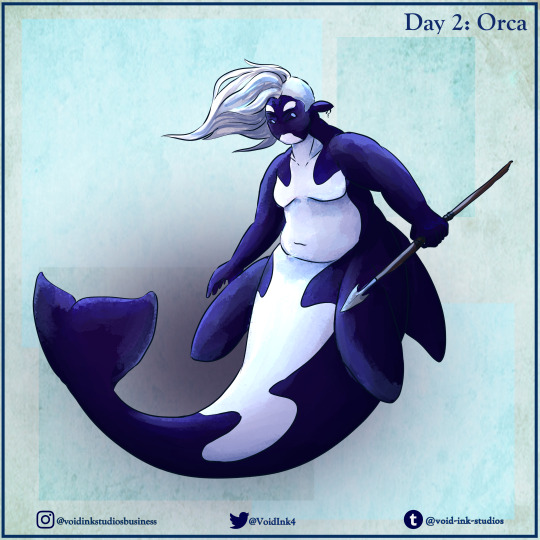
Day 2: Orca
Merms are not known for their use of tools. Some do, but many don't. Some will use rocks to break open shells or pry open caves, but most will opt for teeth and claws. However, even amongst the Merms who use tools, it's extraordinary to see one use our own in the way the White Bellied Diver. Lucy was known to the researches I was assisting, the matriarch of her pod. She carried an old harpoon with her, one she allegedly torn off a ship herself. There's always something a bit haunting when something that intelligent looks you in the eyes the way she does.
[Prompt List]
[Previous] - Day 1: Man O' War
[Next] - Day 3: Mola Mola
————————————–
Like the art? Please Reblog!
Interested in a Commission? Check out my post HERE!
Did you know I have a Ko-Fi? Check it out HERE!
#my art#digital art#mermay#mermay 2024#mermay day 2#fantasy#fantasy worldbuilding#worldbuilding art#mermaid#mermaid art#orca
22 notes
·
View notes
Text
For @alwayschasingrainbows. Another long-owed item! I think this is the short you were hunting up, a few months ago? I couldn’t find the original post because I’m lame, and never tag things right, so I guess I’m really just hoping this is it!
The Price, by Lucy Maud Montgomery, from After Many Days, Tales of Time Passed.
ON THE DAY when Dr. Lennox told Agatha North that she was out of danger and would soon be as well as ever, if she took proper care of herself, Agatha smiled her old, gallant smile up at him and Christine and Nurse Ransome.
"That's the most interesting thing you've said this long while," she told him. 'I was beginning to think you were stupid - your conversation has been so dull. I'm glad I'm going to get better. I want to live. There are so many things I want to do yet. And, oh, I'd hate to die and leave all my nice dishes and my open fire - and that row of tulips I planted out the day I took sick." Christine and Dr. Lennox laughed, the former with a note of heartfelt relief in her laughter. It was so nice to hear Agatha say a whimsical little thing like that again.
She had been so ill; the attack of bronchitis had been very severe, and there were complications. But all was well now; she would soon be her old self again - darling Agatha. Christine bent and kissed her impulsively.
Nurse Ransome had not smiled, did not intend to smile. Her small, pale, watery eyes expressed entire disapproval of such frivolity on her patient's part; her narrow white face seemed to Christine narrower and whiter than ever. Christine hated her; she had not wanted to have her on the case, but no other nurse could be had at the time, and Miss Ransome was certainly competent. Nurse Ransome could not hate - she had not enough intensity for that - but she disliked Christine and pretended to herself that she disdained her. She would have said that Christine was a vain, proud, selfish, thoughtless, idle chatterbox. All of this, and more, was true; but it was equally true, though Nurse Ransome would never have said it, that Christine was an exquisitely pretty, loving, winsome, sensitive creature.
Dr. Lennox was thinking this, as he looked at her across Agatha's bed. He was madly in love with Christine, as all Harrowsdene knew. They were not engaged yet, but everybody took it for granted they soon would be. A good many people thought Dr. Lennox was making a mistake. of course, Christine was a North and would eventually be the heiress of Agatha's not inconsiderable estate, including "Whiteflowers"; but then she was such a wild, laughing thing, "a pretty butterfly," Dr. Lennox's aunt called her contemptuously. She thought, they said, of nothing but dress, dances and beaus, and "spinning street yarn." She laughed and talked too much and too freely - "you always heard her before you saw her." "A doctor's wife above all things should know how to hold her tongue - she would ruin his practice." She was far too intimate with Jen Keefe and her set; she was delicate; she was extravagant; she was, in short, thoroughly spoiled.
Ward Lennox had been told all these things at sundry times and by divers people, and they had made no impression on him at all. He had loved Christine from the moment of their first meeting, and he meant to ask her to marry him as soon as he could muster up the courage to do it. In his eyes she was all but perfection; her few faults were but the faults of petted youth; the only thing he seriously disapproved of in her was her intimacy with Jen Keefe, that lady of the pale gold hair and over-large dark eyes and free-and-easy ways. But once Christine was his wife she would see no more of the Keefes. Ward Lennox fondly believed that he could mould Christine to his views in all things; he had no idea of the strength of will that lay hidden under the soft curves and behind the coquettish eyes of her youth.
Agatha smiled up adoringly into Christine's face. They were cousins, but Agatha was the senior by twenty years.
She had brought Christine up, when the latter was orphaned by the death of both father and mother in baby-hood: 'Whiteflowers was the only home Christine had ever known. She loved it and she loved Agatha passion-ately. But then everybody loved Agatha North, that busy, kindly, charitable, broad-minded, wonderful woman, who was always helping somebody or something, always planning and engineering and succeeding, always full of life and interest and zest and wholesome laughter. Why, Harrowsdene could not get along without Agatha North.
A sensation of relief and gladness went over the whole town like a wave when Dr. Lennox went away from "Whiteflowers" that day and spread the news that Agatha was going to get better and would be about in a few weeks. There had been anxiety; bronchitis so easily ran to pneumonia, and Agatha had the "North heart.”
Before he went away Dr. Lennox explained the change of medicines to Nurse Ransome and Christine.
"She is listening to him, not to what he says," thought Nurse Ransome, watching Christine covertly.
Christine was more aware of Ward Lennox than of what he was saying. She thrilled with a delicious sense of his nearness; she was acutely conscious of his tall straightness, his glossy black hair, his luminous dark blue eyes, and the passionate tenderness she sensed behind the aloofness of his professional manner. But she heard what he said distinctly and remembered it per fectly for all this. She never forgot anything Ward said to her. In all the world there was no music like his voice.
"This is her regular medicine," said the doctor. "Give her four of these tablets every three hours. This," he held out another smaller bottle, "is only to be used if she has one of those restless attacks at night and cannot sleep. Give her one of these tablets - on no account more than one - every four hours if necessary. Two would be dangerous - three fatal. I'll set the bottle up on this little shelf by itself."
It was Christine's turn to sit up that night. Nurse Ransome repeated the caution about the tablets before she went to her room. Christine listened with a slightly mutinous, insolent expression; there was no need of Nurse Ransome's reminders. She had not forgotten what Ward had said; she was not a child. She sent a glance of pettish dislike after the spare figure of the nurse. She felt that Nurse Ransome insinuated doubts to the doctor as to her fitness for waiting on Agatha; it was agony to think he might have or acquire a poor opinion of her in this respect. Christine was vain and abnormally proud; she could not bear to be looked down upon by anybody for any reason. She hated Nurse Ransome because she felt that Nurse Ransome looked down upon her. Christine would have gone to the stake in olden days, not for her religion, but for dread of the contempt she would incur from her co-religionists if she proved too weak for the test of martyrdom. The most acute suffering of her childhood had been endured when a schoolmate had publicly taunted her with a distant cousin of the Norths who had been sent to prison for forgery. She never forgot the shame and humiliation and torture of that day.
Agatha was very restless that night. At the best of times she was liable to sleeplessness - strangely so for her type. At ten o'clock Christine gave her one of the tablets and at two another. She was very careful to set the bottle back on the bookshelf. She was afraid of it. She hoped Agatha would not need it again.
When a week had passed Agatha was feeling so well that she wanted to be allowed to sit up. Dr. Lennox would not permit it. He told her her heart was not yet tit for any exertion. "You must lie here for another week yet. Then I may let you sit up for a few minutes every day."
"You tyrant!" she said, smiling up at him. 'He is a tyrant, isn't he, Christine? My heart isn't going to kill me. My grandmother had the same kind of a heart and she lived for ninety-five years. I'm going to live for ninety-five years - and enjoy every minute of them, and do a thou sand things I want to do.
She laughed up at him and Christine. Dr. Lennox laughed back - dimples came out in his cheeks when he laughed - said good-night, and went out of the room.
Christine put the green shade over the light, and sat down by the window. It was her night to watch again, but the night vigils by now were little more than matters of form. Agatha had never required the sleeping tablets since that first night. She slept soundly, seldom waking until dawn. The sinister little bottle had never been taken down from the bookshelf.
Christine at the window began to dream, looking out into the chilly moonlit night of October. She was beginning to wish acutely that Agatha were quite well. She was getting tired of the sick room, tired of the monotonous existence which Agatha's illness had necessitated. She wanted to get back to her gay round of social doings again, the dances, the teas, the dinners, all the diversions of the little town. She wanted to wear her pretty dresses and jewels again - Christine loved jewels. Agatha had given her a string of tiny real pearls and a glittering Spanish hair comb for her last birthday. She had never had a chance to wear them yet. She wanted to flood
"Whiteflowers" with music again. Next to her love for Ward, music was Christine's most intense passion, and she had not touched her piano since Agatha became ill.
She wanted to get off for a weekend at Jen Keefe's Mus-koka lodge for the deer-shooting. She knew Agatha wouldn't want her to go, but she meant to go for all that.
It was nothing but sheer envy that made people talk about Mrs. Keefe and her set. There was nothing wrong bound by silly old conventions with them; they were gay and up-to-date and not hide-
Then she let herself think of Ward Lennox - gave herself up to a vivid dream of their life together. She forgot her surroundings totally until she was recalled to them by a realization that Agatha was moving uneasily on her pillows.
Christine went to the bed. "Do you want anything?"
"I think I must have one of those tablets," said Agatha.
"My restlessness has just returned - I thought perhaps it wouldn't - I've been doing so well lately. But for half an hour now I've just wanted to toss and scream."
Christine went over to the table, took down the bottle and returned with a tablet. She moved a little absently, for she was still partially in her dream of Ward.
After Agatha had taken her tablet she soon fell asleep.
It was now eleven o'clock. Christine went back to the window and dreamed herself into a doze, leaning back in her big upholstered chair. She did not awaken until Agatha called her. It was the first time she had slept on guard.
"Would you like another tablet, dear?"
"No. The restlessness is gone. I think I'll sleep normally now - but since I'm awake, give me my regular dose. Ugh, when will I ever get square with Ward Lennox for all those hundreds of detestable little white tablets he's made me swallow? But after all they're preferable to the nauseous tablespoonfuls of liquid his father used to inflict on me."
Christine went over to the table rather stupidly. She yawned - she was not wholly awake yet. The clock in the parlour below was striking three. She counted the strokes absently as she took out the four tablets. Agatha sat up in bed to wash them down with a sip of water from the glass Christine held to her lips. She had been warned not to do this and now she slipped back with a sigh.
"I'm weaker than I thought I was."
"Is there anything else you'd like?" Christine asked, smothering another yawn.
"No, no, dear. I'm all right. It's only that I rather feel as if I were a dish of jelly and would all fall apart if violently jarred," said Agatha. "Go back to your chair and rest all you can. Sitting up like this is too hard on you - you're not strong. But you won't have to sit up many more nights. How glad I'll be when I'm well again. It will be so nice to keep my house again - and read my books - and eat just what I want - and be finally rid of that respectable female, Miss Ransome."
Christine went back, but she was thoroughly wakened up now and did not want to sleep. Agatha was soon asleep again. Moving softly, Christine turned on the light by the dressing table, screened it from the sick bed, and sat down before the mirror. Taking the pins out of the masses of her rich glossy black hair she began to experiment with various ways of hairdressing. Christine loved to do this. She was very proud and fond of her beautiful hair, and was in the habit of spending hours at her glass, sleeking and brushing it. After several experiments she got it up in a new way she liked exceedingly. She would wear it like that to Jen Keefe's next dance - with her Spanish comb in it. She slipped across the hall to her own room, and returned with the comb, and put it in her hair. How pretty she was! She leaned her elbows on the table, cupped her chin in her hands, and studied her reflected face earnestly. How very white her skin was!
What a delicate bloom was on her round modelled cheeks. How golden-brown her eyes were behind their long black lashes; her forehead was rather high, but this new way of doing her hair banished that defect. Her neck and arms were lovely. She was the prettiest girl in Har. rowsdene, there was no doubt of that. And the happiest.
And she would be happier yet - when she married Ward.
Oh, she was going to have a splendid, joyous life - ever so much gayer than life at "Whiteflowers" had been.
Though Agatha was a darling, she did not care much for social doings. But as young Mrs. Ward Lennox, she could do as she liked. Ward adored her - he would give her her own way in everything. No "settling down" for her into any poky routine of married life, looking after babies and pantry supplies. No, indeed - not for years to come. She hated children anyhow, children and housework. She was young and beautiful: she would grasp at all youth and beauty could give her. For years to come she would know the joy of pleasing the eyes of men.
She would entertain: Harrowsdene should have its eyes opened. And she would never give up Jennie. Ward didn't like her, she knew, but he would get over that. He would have to get over his strict old-fashioned notions about things. She loved Jennie; Jennie was a dear thing, so gay and good-hearted. Of course, she wasn't an old Calvinistic prude like most of the Harrowsdene women - like all of them, except Agatha. She believed in living and letting live. So did Christine.
"I'm - going - to - do - exactly - as - I - please," she nodded with every word at the radiant face in the glass.
"'I'm - going - to - have - a - splendid - time."
She touched her lovely shoulders admiringly.
"How sorry I am for ugly women," she said. "What can they have to live for? But, of course, there must be some to do the stupid drudgery of life. We who are beautiful should be exempt from all that. It is just enough that we are beautiful."
She laughed softly again, softly, triumphantly, inso-lenily, defiant of fate - the last laughter of her youth.
It was dawn now. Agatha still slept. Christine turned off the mirror light and went to the open window. The grounds of 'Whiteflowers" were very lovely in the faint, pearly lustre. The wind was whistling rather eerily in the dead reeds of the little swampy hollow behind "White-flowers," but the sky was exquisite, with white clouds floating across it.
It was going to be a fine day. Christine was glad. She hated dull stormy days. She would go to see Jen in the afternoon. She hadn't been anywhere since Agatha took ill. But there was no need to mew herself up any longer.
She turned and went over to the bed. Agatha was lying on the pillows, her face turned to the grey light. Something about it sent a strange, horrible dart of vague dismay to Christine's heart. She bent once and touched Agatha's cheek. Christine had never touched a dead person's cheek before - but she knew - she knew.
A shriek of terror broke from her lips. Nurse Ransome, who had just been coming across the hall, rushed through the doorway, followed by old Jean, the house-keeper, who had been on her way downstairs. Nurse Ransome saw at a glance what had happened, but she went promptly to work with all proper attempts at re-vival. Jean was dispatched downstairs to telephone for the doctor. White, shaking, useless, Christine was told to open the other window.
Christine went uncertainly toward the window. On her way she passed the table where the medicine bottle stood. Suddenly she stopped, looking at it. The bottle of sleeping tablets was on it. It had not been put up in its place at eleven o'clock. The bottle of regular tablets was back in the corner, half hidden by the window curtain, just as it had been at eleven o'clock.
What had she given to Agatha at three o'clock?
A hideous conviction suddenly took possession of her mind. She remembered - as if the whole incident rose out of subliminal depths into consciousness - she remembered feeling the raised letters of the poison bottle in her fingers as she counted out the four tablets. The regular medicine bottle was smooth. Her conscious mind, dulled by sleep, had not been aware of what she was doing - had retained no memory of it. But she knew what she had done. At eleven o'clock, her thoughts still tangled in the cobweb meshes of her voluptuous dream-ing, she had forgotten to put the sleeping tablets safely back on the shelf. At three o'clock she had picked up the bottle and given Agatha four tablets from it. Four - and three were fatal!
A sensation of deadly cold went over her from head to foot - then nausea, horrible, beyond expression. She fought it off, and, blindly obeying the dictates of an impulse that had no connection with reason but rushed furiously up from the deeps of being, she caught the poison bottle in her icy hand and set it on the shelf, with one wild, terrified look back at Nurse Ransome. Nurse Ransome had not seen; she was busy with what had been Agatha.
Christine felt herself falling - falling - falling - into unimagined, unimaginable depths of horror. She slid down to the floor by the table, unconscious.
AGATHA NORTH'S DEATH, coming when everyone had supposed she was beyond all danger, shocked Harrowsdene to its centre. She had died in her sleep from heart failure, Dr. Lennox said. He had known it was possible, but as she herself had said, her grandmother had lived to old age with just the same kind of a heart, so he had not been much afraid of it. There was no doubt - no suspi-cion. Everybody was very sorry for Christine who seemed, it was said - for but few people saw her - to be dazed by the blow.
When Christine had recovered consciousness in her own room, Dr. Lennox and Nurse Ransome had tried to keep her there, but she broke away from them with unnatural strength and ran wildly to Agatha's room.
Nurse Ransome was quite disgusted with her entire lack of self-control. She had screamed - laughed - implored Agatha to speak to her - look at her. Agatha had always answered her when she called before. Now she did not even open her eyes - her beautiful, large-lidded eyes.
Christine had wrung her hands and torn her hair. Mingled with all her horror and agony was incredulity.
This thing could not have happened. Agatha could not be dead - it was absurd - impossible. Why didn't they do something?
"Everything has been done - everything," said Ward
Lennox compassionately. Even he did not like this frenzy of Christine's. But she was very young and this was her first sorrow. Agatha had been everything to her, mother, sister, comrade.
Under all Christine's agony was a horror of the discovery of what she had done, and a mad, unreasoning determination that it must not be discovered. She fainted again when she was forced to accept the fact that Agatha was dead; when she recovered she was calm, spent, quiet. She learned that Ward thought Agatha had died of heart failure; no one seemed to have the slightest inkling of the truth. Nurse Ransome questioned her concerning the events of the night, sharply enough, with a shrewish glint in her eyes, as was her way, but evidently without suspicion. Christine told her tale unhesitatingly, looking straight into Nurse Ransome's eyes as she told it. She was glad it was Nurse Ransome and not Ward Lennox who asked her. She could not, she thought, have told that story unshrinkingly to him.
Agatha had been very restless at eleven - she had given her one sleeping tablet and she had slept until three. Then she had asked for her usual medicine.
"I gave it to her," said Christine unquailingly, "and then she went to sleep again."
"Was there anything unusual about her?" asked Nurse Ransome. "Did she complain of anything?"
"I noticed nothing unusual." Christine's voice was steady and even. "She spoke of feeling her weakness - and she raised herself up to take her tablets before I could prevent her.
Nurse Ransome nodded.
"The exertion may have affected her heart a little. She must have died soon after three o'clock, Dr. Lennox says. It is strange you never noticed anything before morning."
"I was sitting over by the window - I never heard the slightest sound from her. I thought she was asleep."
"Did you doze off?" Nurse Ransome was a little con-temptuous.
“No, I was wide awake all the time," said Christine deliberately.
She was tearless now, tearless, cunning, and terrified to the bottom of her soul. She shut herself up in her room when Nurse Ransome had gone and walked the floor.
No one must ever know. She would not confess. It could do Agatha no good now. And what harm might it not do to herself? She was wholly ignorant of what was or might be done in such cases and in her ignorance imagined the worst. They might not believe her - not now, at all events, after those instinctive lies of terror - they might think she had done it on purpose, that might the sooner fall heir to Agatha's money. Sent to prison - tried - she, Christine North, on whom the winds of heaven had not dared to blow too roughly. And even at the best - even if they believed her - even if nothing could or would be done to her - what shame, what humiliation, what outrage to her pride! To have it known that she had poisoned Agatha, her virtual mother, through sheer carelessness, to be always pointed out as one who had been capable of such a deed, no, no, she could never face such a thing - never. Anything, any fate, would be better than that. And she knew what her fate must be. She could never marry Ward Lennox now. Confessed or unconfessed, this thing must always stand between them. But just now in her guilt and dismay and dread, this seemed of little moment. The soul can entertain but one overmastering passion at a time.
She stood before her mirror and looked at her changed face, her white, haggard face with its horror-filled eyes.
It was as if in one hour she had passed from youth to middle age.
"I will not tell - it must never be known," she whis-pered, clenching her hands.
Her dread, and the unscrupulous determination caused by it, carried her through the funeral. People talked of her unnatural composure and her marble-white face. They pitied her, knowing what she had lost in Agatha. But in the back of their minds was the thought that she was a rich woman now, the mistress and owner of "Whiteflowers," and in due time would be wife of Ward Lennox. Back of this again was a thought, or rather a feeling, that giddy, shallow Christine was not worthy of such good fortune.
"She didn't shed a tear - too proud to cry before folks, North-like," said old Aunt Hetty Lawson. "She doesn't become her black. You'll see, she won't wear it longer than she has to. She'll make Agatha's money fly. Well, well, Harrowsdene will miss Agatha North. There aren't many women in the world like her."
Christine never forgot the agony of that hour. She had to sit still among the mourners. She had to look once more on Agatha's dead face - Agatha's lovely, placid face and know that she had killed her, had cut her off in her gracious, beloved, useful prime. Agatha, who had loved her so entirely and whom she had loved so deeply in return. She had to endure the consolations of people who would despise and condemn her ruthlessly if they knew the truth. At moments it seemed to Christine that they must know it - that her horrible inward sense of guilt and remorse must be branded on her face for all to see. Her own realization of what she had done was so intense and vivid that it seemed as if it must radiate from her to the minds of all around her. Yet she sat on like a white statue, as motionless, as seemingly calm as the dead woman herself.
It was over; Agatha's beautiful soul, full of fancy and charm and love, had gone to its own place; her ripe, beautiful body was buried in Harrowsdene cemetery and covered speedily with a loose drift of autumn leaves.
And Christine shut herself up at 'Whiteflowers" alone, refusing to see anyone, even Ward Lennox.
Her dread of being found out was almost gone. Agatha was buried. Since there had been no suspicion before, there would be none now. She was safe. But now that terror was over, another emotion rose up and possessed her soul, horror of herself, passionate, unappeasable remorse. By sheer carelessness she had killed Agatha; she had preened and exulted before her mirror while Agatha was lying dead behind her - Agatha who wanted so much to live. she must atone for it, she must atone for it by lifelong penance. Sitting alone in her room, listening to the heavy rain that she knew was streaming down on Agatha's unprotected grave, she made her enduring vow.
"I have robbed her of life. I will not have life myself," said Christine.
AT FIRST people thought the change in Christine was merely the result of grief and trouble. It would soon wear off, they said. But it did not; then they began to talk and wonder and whisper again. They talked and wondered and whispered until they were tired of talking and wondering and whispering and lapsed into acceptance of a threadbare fact.
Christine cared nothing for their talking and wondering and whispering. She was bent only on atonement - bent on dulling the sting of remorse to a bearable degree by increasing penance. Within a month of Agatha's death she had organized her existence on the lines it was henceforth to follow, and nothing - entreaty, advice, blame - ever availed to move her one jot from her elected path, until people gave up blaming, entreating, advising; left her alone, and practically forgot her. Nobody could ever have believed that, much as Christine was known to have loved Agatha, her sorrow could have had such a lasting and revolutionary effect on her. But since it was undeniably so, they accepted it, concluding that Christine's mind had been affected by the shock of Agatha's death. After all, there had always been a strain of eccentricity in the Norths. Agatha herself had been eccentric in her very philosophy of living - so gay and tolerant and vivid at the years when other women had grown sober and hidebound and drab with the stress of existence.
Christine, with her own hands, put away all the things Agatha would never wear or use more, pretty things all of them, for Agatha had loved pretty things. She hung Agatha's picture in the room where Agatha had died, that she might not see it, and locked the door. But she took the brown bottle of sleeping tablets and set it on her own dressing table before her mirror, on the dressing table from which had been banished all the little implements of beauty she had been wont to use assiduously. She had no longer any use for them, but every night and every morning as she brushed her thick black hair straightly and unbecomingly off her face to its prim coil behind, she looked at the deadly reminder of her deed.
Ward Lennox respected her grief and desire for solitude as long as he could bear it. Then he went to her, told her his love, and asked her to marry him. Christine coldly refused. He was thunderstruck; he had been sure Christine loved him. Had he not seen her eyes change at sight of him, the revealing colour rise in her lovely face?
Yet now she looked unblushingly at him and told him she could never marry him. He did not give up easily; he urged, entreated, reproached. Christine listened and said nothing.
"Don't you love me?" he asked.
"No," she said, with her eyes cast down.
Ward did not believe her. He went away at last, intending to return soon. But when he went back he rang the bell at 'White flowers" unavailingly; and no answer came to his letters. He tried at intervals for a year to see Christine; then he gave up, convinced that she did not care for him, never had cared. What he had mistaken for love had only been the coquettish allurement of a wild girl, who had been sobered by trouble into a realization that she should not so play with the great passion of lie.
Christine loved him as she had always done. For one mad moment she was tempted to confess all and throw herself on his mercy. Surely if he loved her as he said he did he would overlook and forgive. But then, to fee always humiliated before him in his knowledge of her indefensible carelessness; she could not bear the thought.
This one master dread held back the words. Without it she would not have been strong enough to put away love from her, even for atonement. All other joys she could sacrifice to her craving for remorse. But not this. If it had not been for the pride that could not brook the thought of shame she would have fallen at his feet and gasped out the truth. But that pride sealed her lips forever.
She put all her old friends out of her life. Most of them had been of the Keefe set. When Mrs. Keefe came to
"Whiteflowers" old Jean Stewart told her ungraciously that Christine would not see her. Mrs. Keefe went away insulted and never made any further attempt to renew her intimacy with Christine. When, two years later, the scandal of the Keefe divorce case, with all its unsavoury details in the matter of a certain Muskoka house party, burst upon Harrowsdene, people said significantly that it was well Christine North was not mixed up in that. But by this time Harrowsdene had accepted and almost forgotten the new Christine.
Old Jean Stewart died three years after Agatha's death, and thenceforth Christine lived alone, keeping the big house herself in the immaculate fashion that Agatha had loved. She had always hated housework. She did it all now, down to the very scrubbing and stove-blacking, taking a fierce satisfaction in these hated tasks, glad when her beautiful white hands, on which never a jewel shone, grew rough and hardened. She had to have help outside, to keep the grounds as Agatha had liked them. For this purpose she employed half-witted old Dormy Woods who pottered about all the lawns of Harrowsdene and liked to insinuate that he knew dark secrets about everybody. Sometimes the queer remarks he occasionally let fall gave Christine a start of dread; when he looked at her with his horrible filmy eyes and said leeringly, "I could tell strange tales o' some folks. she grew cold to her very heart. Was it possible he knaw and guessed her secret? No, it was not possible. But she was always uneasy in his presence, and it was for thar very reason she employed him. It was part of her pen. ance. Perhaps, too, old Dormy told her bits of unsolicited news now and then.
She gave largely and secretly to the charities that Agatha had always supported, but she never spent an unnecessary cent. When people called her miserly she said bitterly to herself, "That is better than being called a murderess." She never wore anything but severe black.
She never went anywhere save to the stores, where she did her economical buying, and to church. Every Sunday she sat alone in the old North pew, reading her Bible until the service began, never lifting her eyes. She did this because she detested reading the Bible. For the same reason she read a chapter in it every night and every morning. One month, eight years after Agatha's death, she suffered from a slight but uncomfortable affection of the eyes that was epidemic in Harrowsdene, and could not read at all. Then she discovered that she missed her Bible, that she had come to enjoy it. From that time she never opened her Bible again. Yet she had read through it so often that it had become part of her, its philosophy. its poetry, its drama, its ageless, incredible wisdom, of earth and of spirit, its unexampled range of colourful human nature were hers inalienably, permeating her soul and intellect.
Her reading was all heavy and serious now. She never looked at one of the sentimental romances she had once bivelled in. Now she read only the old histories and biographies and poems in the old North bookcases. This hoed part of the time left over from her meticulous housekeping; the rest she passed in knitting and sewing, making garments which she secretly sent to the poor of the nearest city.
She never touched her piano after Agatha's death; no one ever heard her sing again. She never spoke to anyone beyond a grave Good Day, and when people talked to her or strove to hold her in conversation she answered with brief gravity and went her way - she who had once been such a chatterbox. She had put all companionship out of her life. She would not even have a cat or dog at "White-flowers." She kept the flowers that Agatha had loved in her garden, but she never touched one. Moonlight was still a fair thing, but she would not look at it. She would not accept any enjoyment, and she never for one waking moment forgot that she had killed Agatha. The passing of years never dulled or dimmed the realization. Sometimes she dreamed that people knew of it and looked on her with horror and contempt. She would wake up with perspiration on her forehead and breathe a word of passionate relief that it was only a dream.
She did not wholly succeed in banishing all passion from her life. When old Dormy told her that he'd heard Dr. Lennox was going to marry Florence King, the high school teacher, she felt a sudden savage thrill of jealousy.
"Surely he will never marry that stiff, pedantic crea- . ture," she thought. Yet she knew Miss King was handsome and clever, and Dormy reported Harrowsdene as approving the match. That night Christine looked from her window through the gap in the pines to the light that burned in a house across the river. She knew the light was in Ward Lennox's office, and she kept an ugly vigil with pain and longing. But by dawn she had conquered it. Ward Lennox might marry Florence King. It was naught to her. She had put all that behind her.
But Dr. Lennox did not marry Florence King; he did not marry anyone, though gossip linked his name with this or that for many years before it accepted the fact that Dr. Lennox meant to remain a bachelor. He was a busy, friendly man, with a large practice; everybody liked him and trusted him. People got well of serious illnesses iust because they believed in him. His personality cured more patients than his medicine. He was no hermit. He went freely into society and enjoyed life. He and Chris. tine never met. At long intervals they passed each other on the street. He would bow courteously and Christine coldly; that was all. People had forgotten that it had ever been supposed they would marry.
AFTER THIS FASHION fourteen years passed. Christine was thirty-four years old - if anybody had thought about her age. Nobody did. Her own generation were all married and gone. To the younger she was what she had always seemed - a grave, stately, middle-aged eccentric woman, considered miserly, living her strange secluded life at old-fashioned "Whiteflowers." She was always pale, darkly and plainly dressed; yet there was a haunting, tragic charm about her that made the younger beauties seem cheap and common beside her. Christine never thought about her appearance save when, looking into her unshaded mirror over the brown bottle on the table, she saw the lines on her face and the slight hollows in the cheeks that had once been so round and delicately hued, and had a momentary impression that she was old and faded - much more so than her contemporaries. But that was part of her atonement. She had given up her beauly when she gave up love and life's fulfillment. Her atonement was becoming easier - too easy, she thought. She had ceased to have wild longings of the things she had put away from her. She had ceased to dream of Ward - ceased to desire feverishly to find open her silent piano and plunge her fingers into music. She was beginning to like her housework, her reading, even her sewing and knitting. When she realized this, she felt all the old sting of her guilt and remorse. She must not be happy. What could she do to make herself miserable?
The thought came to her that she would adopt a child.
Nothing could be more distasteful to her. She had always disliked children. Most of all she disliked ugly children.
She went to the orphan asylum in the city and brought home its ugliest inmate - a boy of eight, with a pitiful little face scarred by some inhuman attack of a drunken father. His name was Jacky Brent and he was a timid, silent little fellow - the very type which made Christine feel most uncomfortable. But she revelled in her discomfort and in all the annoyances which the care and upbringing of this child brought into her methodical existence. She left nothing undone that could contribute to his comfort and welfare. She studied dietetic tables and child welfare magazines, and vexed her soul with balanced meals and tables of weights. She helped him with his lessons; she invited his schoolmates to "White-flowers" to make it lively for him and watched over their games and their manners, and got up appropriate lunches for them. She got a dog for him and forced herself to tolerate muddy paw tracks; she played halma and dominoes with him - even ball in the backyard because she abhorred it. She helped him with his les-sons, even, she remembered, as Agatha had once helped her. She helped him build a playhouse and picnicked with him in it. She forced herself to talk to him. She had lived so long with silence that she found it difficult to talk, and more difficult still to talk to a child. But she persevered, and eventually, as they gradually built up a little store of common interests, she found it easier and easier. Jacky learned to talk too, as his timidity wore off somewhat, and sometimes his quaint, unexpected remarks prompted in Christine a desire for laughter which she had long been a stranger. She never let herse laugh. She did not even smile, but momentarily the eyes of her girlhood returned to her.
In spite of his delicacy of appearance Jacky was a healthy child, but one night, when he had been ar (White flowers" nearly a year, he was suddenly taken violently ill. Christine telephoned wildly for old De.
Abbott. Dr. Abbott was away; there was nothing to do but send for Ward Lennox. Ward Lennox crossed the threshold of "Whiteflowers" for the first time in fifteen years.
He was cool, impersonal, professional; Christine was so upset about Jacky that she could think of nothing else.
They met and talked like casual acquaintances.
Ward Lennox told her that Jacky had appendicitis and that an operation was imperative. No time must be lost.
At dawn a trained nurse was in charge of the case, and the specialist from the city had come. Christine locked herself in her room and paced the floor until the operation was over. Then they told her that the abscess had broken before the operation and that Jacky's condition was very critical. Christine went back to her room.
She did not pray. She had never prayed since Agatha's death - she had never dared to. Always in the back of her mind was the feeling that she must not pray without confession - and she could not confess. She did not pray now; she looked at her drawn, anguished face in her Blass and for the first time she was unconscious of the little brown bottle under it.
Jacky might die, and she loved Jacky!
"I cannot live without him," she said, wringing her hands. "I cannot."
She remembered with a stab of horrible compunction that she had rebuked him sharply the day before for something he had said. She recalled his grieved look, the look that always came into his poor little face when he displeased her. He had always tried so hard to please her. That very night before he went to bed, when he had seemed so tired and dull, he had faithfully hung his clothes up and set his shoes straight, and put all his little treasures tidily away in his box, as her rigid rules re-quired. Christine went and looked at them, his little tops and nails and balls and engines, his new jack-knife and the old broken one he still loved because it had been his only prized possession in the asylum, his tin pail and spade, and the dancing monkey which had delighted him so. If Jacky died . ..
Jacky did not die. He recovered. And when he was well again Christine sat down in her room on the first day he went back to school and took stock of her emotions.
She had taken Jacky for a penance. He had ceased to be a penance; he had become her delight. She loved him with all the intensity of her passionate nature. She could not give him up - she could not. Such a sacrifice she could not make. She had once given her lover up in the surge of a new horror and remorse. But that surge had spent itself. She could not give Jacky up now; neither could she keep him with her guilty secret. One must be surrendered. She must make her choice.
When Jacky came from school, running through the hall calling gaily for "Aunty," who had petted and spoiled him all through his convalescence, her choice was made. She got Jacky his supper, helped him with his lessons and put him to bed, reconciling him to its unusual earliness by the promise of a treat on the morrow. Then she went out, bareheaded, into the autumn dusk - not realizing that she was bareheaded.
She had thought it all over. The tale must be told. She did not know what the result might be. Probably at this lapse of time nothing would be done to her. People would believe that it was merely carelessness and content themselves with gossip and wonder and condemnation. Christine's pride still cringed at thought of it, it would be horrible, horrible to open up the old wound, horrible to have her long-hidden secret proclaimed to her world. But it must be.
To whom could she tell it? Nurse Ransome had died five years ago. Ward Lennox? Yes, it should be to him. Her punishment must be as severe as it could possibly be.
She would go and confess to him.
She walked steadily along the street. The world about her seemed weird and purple and shadowy, with great cold clouds piling up above a sharp yellow eastern sky.
Christine felt that it was in keeping with her terrible errand; when she passed a house through whose open windows came the sound of music and laughter and dancing, she shuddered. Tomorrow these people would be talking of her - of her, Christine North, who had poisoned Agatha. And yet they were dancing tonight as if there were no such things in the world as horrible carelessness and never-dying remorse and public shame.
She struck her hands together in her misery but she went on.
Ward Lennox was sitting on his verandah when Christine came up the walk in the pale moonshine that was beginning to silver the October dusk. His amazement could not have been much greater if Agatha North herself had come up the walk - it almost made him speechless But he contrived to murmur a few conventional words and asked Christine to come in.
"I would rather stay out here," said Christine, who fell that what she had come to say could not be said in a lighted room.
She sat down in the chair he drew forward for her. The light streaming out through the window of the room behind her made a primrose nimbus around her shapely head. In the dim light she looked very beautiful, a majestic creature with that subtly knowing, deep-eyed white face of hers in its frame of flat dark hair. The lovely line of cheek and throat rose above her black collar. Ward Lennox suddenly remembered the time he had dared to kiss that white throat - the only time he had ever kissed her. It seemed to him that he could almost hear her little, deprecating laugh as she escaped him. Surely it had been the laugh of a woman who loved the man who kissed her. No coquette could have laughed just like that.
Christine looked straight at him, sensing the vast reserve of strength that underlay his external courtesy and gaiety and charm. How strong he was! And she - she had been so weak and cowardly!
"I have come to tell you something," she said.
"Yes," he said gently.
Christine waited a moment. She must find very plain, direct words. Her hands, she found, were clammy and her mouth was dry.
"I killed Agatha fifteen years ago. I didn't mean to - but I killed her."
"Christine!'
It gave her a strange shock to hear her name again. It was so long since she had heard it. For years she had been Miss North to everyone. Even to Jacky she was only "Aunty." Under the shock she was also conscious of an enormous relief, as if some horrible darkness or weight had been suddenly lifted from her soul.
She hurried on, rather incoherently now.
"I gave her four of the sleeping tablets by mistake, through carelessness. My thoughts were wool-gathering. I hadn't put the tablets back in the right place when I gave her one at eleven - and I fell asleep - and was stupid when I went to give her the regular medicine - and then I-I- played with my hair at the glass for hours, and she was dead - I never knew it. And I could not confess, I knew I ought to - but I was afraid to. I thought they might put me in prison, or always point the finger of scorn at me. I couldn't face it, so I lied. But I am telling the truth now, and I've done penance - oh, I've done penance. But I can't give Jacky up - so I'm telling it all now. Oh, whatever they do to me, don't let them take Jacky from me."
Ward Lennox was moved profoundly. Everything was clear to him now and, oh, the pity of it! For it had all been so unnecessary.
"Christine," he said slowly. "You did not kill Agatha. The tablets you gave her were quite harmless."
Christine looked up, dazed, incredulous.
"The day before Agatha died Nurse Ransome told me that she did not think the sleeping tablets would be needed again and I took them away, wanting them for another patient, as my supply had run low. I left in their place a bottle of tablets to be used if Agatha had any return of certain annoying digestive symptoms. They were harmless - the whole bottleful wouldn't have hurt her. I remember it all distinctly. Nurse Ransome should have told you. I suppose she forgot. Agatha died of heart failure - there is absolutely no doubt of that. Oh, Christine, my poor darling, and this was why - if you had trusted me…”
"If" indeed! Christine was struggling with a whirlpool of emotion in which a still half-incredulous joy was uppermost. She had not killed Agatha - there was no blood on her hands - that was the only fact she could grasp clearly now. Later on would come bitter regret, for her folly and cowardice, for the lost, wasted years, for everything she had thrown away in insensate sacrifice to her pride and her vain hunger for atonement. Later yet again would come a wistful realization that, after all, the years had not been wasted. Vanity, selfishness, frivolity had been stripped from her soul as a garment. Strength, fineness, reserve, dignity, all she had lacked had been given unto her in those years of penance; even physically they had not been barren. In her regular, simple life the delicacy of her girlhood had vanished. She had become a perfectly healthy woman. All this had been bought with a great price, but she could never have purchased it in a cheaper market.
She stood up ... and swayed unsteadily.
"I must go home - think this out. I can't - no, no, you must not come with me - I must be alone."
"Christine!" His voice was a sharp protest. "You are not going to shut me out of your life again - I love you. I've always loved you - we must…”
"Not yet - not yet," she besought him feverishly, pushing him away from her.
He stepped back and let her pass. He had waited long- he could wait a little longer.
Christine went blindly home to "Whiteflowers." She went to Agatha's room and knelt by Agatha's bed. For the first time in fifteen years she prayed - a prayer of thankfulness and humility. For the rest of the night she sat at Agatha's window looking out into the moonlit beauty of "Whiteflowers," or walked about the dim haunted room in a mingled intoxication of joy and regret. Under all the turmoil of her mind she felt curiously young again - as if life had suddenly folded back many of its pages.
Through the gap in the pines she saw Ward's light in the house across the river. For the first time since Agatha's death she let herself think about him. A door of life she had thought shut forever seemed slowly opening before her.
24 notes
·
View notes
Note
Hi, Luci! I was wondering if raw pace just refers to outright speed/qualifying speed and race pace is more car dependent rather than driver dependent? I've seen people say that (not rlly season specific) Charles is on top/one of those on top in terms of raw pace but Max beats him in race pace, which is understandable considering that Max has had dominating cars, but people are making it out to be a skill thing? I think I'm missing something here bc the way I understand race pace is how consistent the car is rather than peak performance. And it's more car-dependent unlike raw pace.
Could you clarify this for me please? (And a bit of a bonus question if you don't mind, I'd like to know who you think in the grid are the best in terms of raw pace and race pace)
Well, this is tricky because pace does mean different things. There are different types of pace, and the confusing thing is that people will just shorten it to "pace"
Race pace: consistent times lap to lap. Good race pace is consistently fast times lap to lap without significant drop off.
Single lap pace: this is speed over a single lap. However it can also be expanded to mean a driver who is consistent at setting very competitive single lap times(usually in reference to qualifying)
Qualifying pace: basically the same thing as single lap pace, people often use those interchangeably.
Speed: the time of a lap relative to the rest of the field. Obviously the fastest single lap time would make a driver's speed the best, and a lower one wouldn't. This is reflected in both driver and car performance.
Raw pace: another one that is used interchangeably with "speed" and "single lap pace"
People often say "pace" when they mean any one of these things. I am guilty of doing it myself. But you will hear people say "single lap pace" etc etc. The way to know what they mean is the rest of the sentence, are they talking about qualifying? Then they probably mean single lap pace. Are they talking about the race? Then they probably mean race pace.
A lot of these words mean the same thing.
Both are skill dependent. I don't think one is more or less car dependent than the other. Both require skill to excel at, just in slightly different areas. And both are impressive.
You are right it is confusing.
The thing is that a diver can have excellent race pace, but if they are in a slower car that isn't going to shine as much as if they were in a faster car.
These things are both car and driver dependent. You obviously need a fast car to have a chance at setting really competitive single lap times, and you need a good car that doesn't have serious performance issues for good race pace.
Factors that are skill based that contribute to race pace: tyre management, throttle application, braking application, curb timing. Getting all of those correct consistently to maximize each lap is all skill. The car has to be there for the laps to be able to reach those super competitive speeds, but after that it's skill.
A skilled driver can extract a lot more race pace out of a mid car through tyre management etc. That's actually one of the reasons Charles has been competitive even in seasons when the car wasn't all there.
Race pace is usually more car dependent in a lot of ways, because a lot of these cars can be fast over a single lap, but very few sustain it.
The reason people say that about Charles being really competitive one single lap pace but not race pace is because they are looking at the number of poles he's scored and comparing it to results. People make the assumption that if you got pole and didn't win then it means your single lap pace was good but your race pace wasn't. And that's somewhat true but it doesn't tell the whole story, because there are a lot of reasons that are not pace related that drivers don't win a race. That and Charles has been in some very inconsistent cars(SF-23 being a good example) that had very good single lap speed but did not have the corresponding race pace.
Having good pace in both areas is 100% a skill thing, and it especially becomes apparent when you do teammate comparisons in the same machinery. Having bad pace can be due to a lack of skill, but it is more often due to the car. So it's kind of hard to gauge accurately.
The issue is that it's basically impossible to correct for the fact that these drivers are in different cars to really say X has better pace than X and by this much. We can learn things based on that, for example showing Charles had good pace compared to Max even when the car Charles was driving was nowhere near as good as the car Max was in, that tells us something. But it's not something that can be corrected for data-wise.
Doing teammate comparisons is more helpful in examining where a driver's strengths and weaknesses are showing during any given season.
The things about Charles is, when he has the car we have seen his race pace is extremely competitive. If the car is there he is capitalizing on that and going for the win. So we can tell looking over his career and accounting for more context that yes he has very competitive race pace.
Also I don't know who is saying this but Charles' race pace this year has been one of the best. There are previous years where the data didn't reflect that and it was due to the car more than anything else.
So it is a skill based thing, but with limits because a driver can be the best in the world but they cannot make the worst car suddenly go faster. It's really something you need to observe closely for over a long period, and understand that it's really hard to do a direct number comparison for.
To answer your second question.
Raw pace: Max, Oscar, Charles, Fernando, Lewis, Yuki, Nico, Alex
Race pace: Charles, Max, Fernando, Lewis, Lando
(this is probably not comprehensive and just off the top of my head)
13 notes
·
View notes
Text
Four Lovecraftian Horror Story Shorts
Story 1: The Awakening Below

Dr. Aaron Blackwell was renowned for his underwater explorations, but nothing had prepared him for the cave system beneath the Mariana Trench. Funded by a mysterious benefactor, he led a team of divers to uncover what lay in the uncharted depths.
"This place gives me the creeps," said Lucy, one of Aaron's top divers, as they descended deeper into the abyss.
"Steady, Lucy," Aaron urged. "We’re making history here."
The deeper they went, the darker it became. Then, through the murky waters, they saw it—an ancient, gargantuan structure, covered in bioluminescent markings that pulsed like a heartbeat.
"Is that a temple?" Aaron wondered aloud.
As they approached, the water vibrated with an eerie frequency, making their heads throb with whispers of alien syllables. Against his better judgment, Aaron reached out to touch the structure.
A rumble shook the waters, and the structure began to rise, revealing itself to be only a small part of a colossal, living entity. Eyes the size of houses opened, and the divers froze in terror.
"Back to the surface, NOW!" Aaron shouted.
Their ascent was chaotic, but the entity pursued them, its whispers turning to shrieks in their minds. Aaron reached the surface, gasping for breath, only to find the sky churning with unnatural colors and alien constellations.
"You have awakened The Slumbering," Lucy said, but her voice was no longer her own. Her eyes were voids of infinite black. "Welcome to the new reality."
Story 2: The Eternal Manuscript

Robert Turner, an antiquarian bookseller, prided himself on finding rare texts. One evening, he discovered an ancient manuscript buried within a box of old tomes.
"Strange," he murmured, examining the leather-bound book. Its texture felt disturbingly alive.
Ignoring his unease, Robert opened it. Instead of words, the pages were filled with shifting geometric patterns, shapes that defied logic. The room around him seemed to bend as he continued to stare.
"What... is this?" he whispered, even as he felt himself pulled into the pages.
He started to hear a low, droning chant, describing elder gods and forgotten evils. The words twisted in his mind, causing his vision to blur. Shapes within the manuscript began to move and converge, forming grotesque faces.
Feeling a compulsion he couldn’t resist, he read an incantation aloud. His voice echoed unnaturally, amplified by forces unknown.
The air around him grew thick, and the room darkened. From the shadows, slender, multi-limbed creatures emerged, their eyes glowing with malevolent intelligence.
"You have summoned us," one hissed, its voice scraping like metal on stone. "Prepare to join our eternal library."
Before Robert could react, the creatures grabbed him, pulling him into the manuscript. He screamed as his body dissolved into ink, the book absorbing his very essence.
The manuscript closed itself, now resting innocently among the other books, waiting for its next reader.
Story 3: The Cosmic Observatory

In a remote part of the Arctic, Dr. Elena Carter built an observatory to study the cosmos. Equipped with advanced telescopes and alien detection equipment, she aimed to unlock the secrets of the universe.
"Elena, are you really sure about this?" her colleague, Dr. Steve Hargrove, asked. "We've never pointed the telescope at those coordinates before."
"That's exactly why I'm excited," Elena replied, eyes alight with anticipation.
As they focused on the targeted coordinates, the telescope revealed a cluster of pulsating lights forming a spiral pattern. This was no ordinary star system; the lights seemed to convey a deliberate, almost sentient design.
"It's...beautiful," Steve marveled, but his voice wavered.
Soon, bizarre patterns began to form on the observatory's monitors. The signals grew in intensity, and a haunting melody filled the air.
"Can you hear it?" Elena asked, entranced by the sounds.
The music grew louder, harmonizing with an unearthly chorus. Dazed, they stepped outside, and Elena's gaze was drawn upward.
In the sky, an ominous formation appeared—an ethereal doorway opening to an abyss of shimmering colors and dark voids. Alien entities, with forms that defied logic, began to descend.
"They have answered," Elena said, her voice a mix of awe and fear.
The beings reached out with tendrils of light, touching Elena and Steve. Their skin prickled, their minds flooded with an overload of alien knowledge. They screamed, their consciousness breaking under the cosmic revelation.
When the morning came, the observatory was deserted, monitors still displaying that haunting melody. All that remained of Elena and Steve were their empty clothes and the disquieting feeling in the air, as if the universe itself had shifted.
Story 4: The Waxen Keeper

James Morrow was the night security guard at the Arkham Wax Museum. The museum's latest exhibit featured unsettlingly lifelike figures of ancient gods and cosmic horrors crafted by a reclusive artist named Ezra Blackwood.
"You're really gonna stay here alone with these things?" the day guard, Bill, joked. "You're braver than me."
James chuckled nervously. "Someone's gotta do it."
As the night wore on, James patrolled the dark, empty halls. The wax figures seemed to watch him, their eyes glinting in the dim light. He couldn't shake the eerie feeling they were more than just statues.
Near midnight, a low hum filled the air, and James noticed one of the figures—a grotesque depiction of an ancient, tentacled deity—had shifted. Its eyes, previously dull, now glowed with an unholy light.
"What the...?" James muttered, stepping closer.
The figure moved its head slightly, and James jumped back, heart pounding. "Bill? Is this some kind of joke?"
A deep, resonant voice filled the room, echoing from everywhere and nowhere. "We are the Watchers of the Beyond."
James backed away, only to find himself surrounded by the wax figures, all now animated and converging upon him. Their movements were slow, almost deliberate.
"You have tended our prison well," the voice continued. "Now it is time for your reward."
The tentacled deity extended a limb, touching James lightly. His skin began to harden, and he felt his muscles stiffen. He gazed in horror as his hands turned into wax.
"No, please!" he begged, but his voice was already thickening, becoming as solid as the wax enveloping him.
In the morning, the museum had a new exhibit—a perfectly sculpted wax figure of James, frozen in eternal terror among the other eldritch abominations.
Visitors would marvel at the lifelike details, never knowing that James was still conscious, trapped forever within his waxen prison, a silent guardian of the ancient horrors.
#horror stories#cosmic horror#eldrich horror#short stories#creepy stories#underwater horror#mariana trench#ancient evil#mysterious manuscripts#occult#alien encounters#artic horror#dark observatory#wax museum#nightmare fuel#spooky vibes#supernatural#unsettling#dark fiction
7 notes
·
View notes
Text

Portrait de Lucie Delarue-Mardrus dans Muses d'aujourd'hui de Jean de Gourmont, 1910
Wikimedia Commons
8 notes
·
View notes
Text
I have my own head-canon about young Mags Flanagan.
I believe she was ‘sea-kissed,’ partially deaf from a young age after spending so much time in the sea. She signs and lives with her beloved, elderly father. In District 4, she would have been a fantastic diver and fisher. She’s allowed to keep the dregs of the catch at the end of a day. It means she’s never needed tesserae but signs up anyway to distribute the grain to the other children. Her father approves. He makes a mean fish chowder.
She’s often told to be more careful, but she knows her time in the games is coming, perhaps whispered to her by the sea.
Post games, she teaches others to fish, to make a fishhook out of anything, to swim, to survive. She mentors and tries to save every last tribute. She has no children of her own. She won’t risk it. Until Finnick comes into her life, like Annie before him. After his games, he is her heart, her family. She would die to protect him.
I hope we see her games one day. She is the next victor after Lucy Gray Baird. She holds a place in my heart.
#mags flanagan#the hunger games#the hunger games: catching fire#the hunger games: the ballad of songbirds & snakes#finnick odair#annie cresta
9 notes
·
View notes